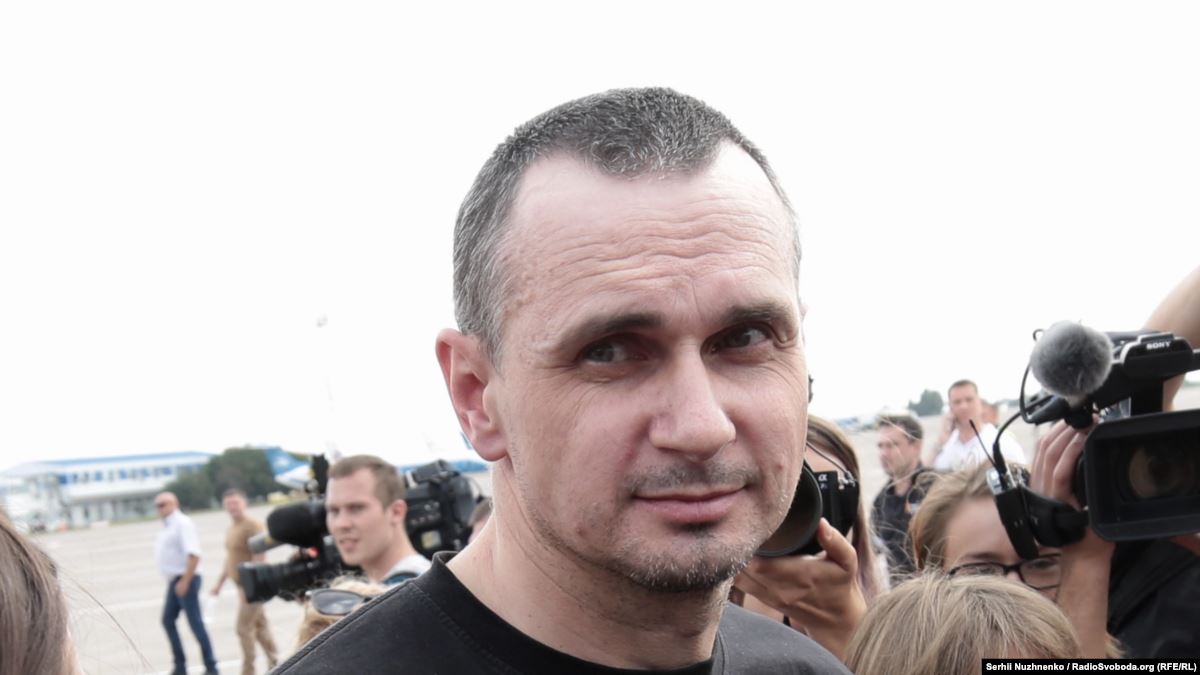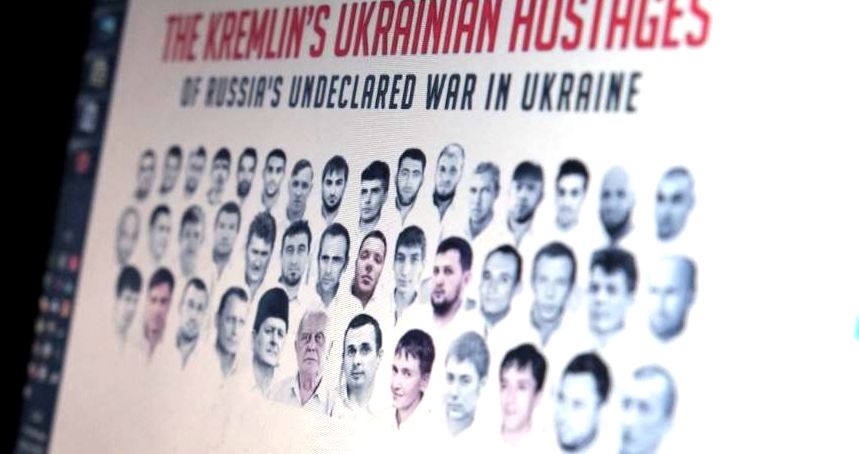Victims of the Russian “police of thought”
On 2 October, masked Russian security officers raided the house of Renat Suleymanov, a father of three daughters living nearby Simferopol, the capital of occupied Crimea. They took him away in a car with hidden license plates. On the same day, three other Crimean Tatars living nearby were detained: Arsen Kubedinov (who has four little kids), Seyran Mustafayev, and 64-y.o. veteran of labor Talyat Abdurakhmanov.
Read also: Due to political repression, nearly hundred Crimean kids grow up without fathers
The investigators recorded the voice of Suleymanov for examination. According to the lawyer Edem Semedlyaev
, this indicates that his conversations are likely to have been wiretapped before.
Article 282.2 on “extremism” of the Russian Criminal Code, which is imputed to them, stipulates punishment ranging from a 300,000 RUB-fine (nearly $5,200) to ten-year imprisonment.
The notorious Crimean judge Viktor Mozhelyanskiy, known for his betrayal of Ukraine and lawless conviction of the Euromaidan participant Oleksandr Kostenko, sent Suleymanov, Abdurakhmanov, and Kubedinov to SIZO (remand jail) until 29 November, and placed Mustafayev under home arrest. The aged Talyat Abdurakhmanov could barely hear the words of the judge, who groundlessly deprived him of freedom.

Mustafayev reportedly avoided SIZO because of the intervention of the Spiritual Directorate of Crimea’s Muslims, whose leaders collaborate with Russian occupiers. The Directorate is said to have agreed to intercede for the detained believers but only on condition that they admit their “guilt” and renounce the independent legal defense. The investigators are also pressing them into false confessions in exchange for softer prospective sentences.
The four detained persons became the victims of the “police of thought” the occupiers are creating in Crimea, believes the human rights advocate Enver Kadyrov:
“Russian authorities have detained peaceful people, Muslims, who did not call anybody to anything. They are very responsive, always offered their help, and they’ve never voiced any extremist slogans. We see that the Kremlin has long wanted to control even the thoughts of various groups within the society. Any dissent is doomed to a ban. Now the Russian reality is projected onto annexed Crimea.”
Nothing compromising about Tablighi Jamaat in Crimea and Russia, experts say
On the day the Crimean Tatar houses were invaded, the FSB boasted about the liquidation of three cells of the “extremist” organization Tablighi Jamaat. Such a statement clearly aims to shock and scare the listener with the unknown name of the supposed “enemy.” It seeks to make use of the poor awareness of the audience, popular xenophobia, and colonialist mythology of the Putin era.

Tablighi Jamaat (The Society for the Dissemination of Faith) is a non-political religious movement founded in India in 1926. As its main goals, it puts forward the revival of Islam and the peaceful spiritual transformation of people according to the Islamic principles. In 2009, the organization was declared “extremist” and banned in the Russian Federation. When adopting this decision, the Supreme Court of Russia defined the movement as the threat to the territorial integrity of the Federation, as its activists allegedly propagated the establishment of the global Caliphate and were involved in “terrorist activities.”
However, as the director of the Central Asian program of the Memorial Human Rights Center Vitaly Ponomaryov notes, none of these accusations corresponded to the facts. “As far as I know,” he says, “the FSB [Russia’s Federal Secret Service] simply falsified the materials for the Supreme Court.”
Since the ban, a number of supposed supporters of Tablighi Jamaat have been persecuted and jailed in Russia’s capital and regions, particularly Tatarstan and Bashkortostan.
According to Vitaly Naumkin, who in 2009 was director of the Institute for Oriental Studies at the Russian Academy of Sciences, Tablighi Jamaat had “never been noticed in any terrorist or extremist activities.”

Up to the present time, Tablighi Jamaat movement has been unknown to Crimea, writes the head of the Mejlis of the Crimean Tatar People Refat Chubarov. In his view, the emergence of its name in the Crimean FSB vocabulary demonstrates that the previous attempt to compromise the Crimean Tatars with the artificially pushed links to the international Islamic party Hizb ut-Tahrir has failed.
“I suppose that the name of Tablighi Jamaat appeared also because the chief of Russia’s FSB directorate in occupied Crimea is Viktor Palagin, who is known after his bloody campaigns against Muslims in Bashkortostan and the Republic of Mari El. There he was fighting Tablighi Jamaat,” Chubarov reminds.
Kremlin’s vindictive response to the UN?
The lawyers Edem Semedlyaev and Emil Kurbedinov consider the recent charges of “extremism” against the four Crimean Tatars as the occupiers’ reaction to the report on Crimea
issued by the Office of the United Nations High Commissioner for Human Rights at the end of September.
“While those human rights violations and abuses have affected Crimean residents of diverse ethnic backgrounds, Crimean Tatars were particularly targeted,” the report reads. “Intrusive law enforcement raids of private properties have also disproportionately affected the Crimean Tatars and interfered with their right to privacy under the justification of fighting extremism.”

Semedlyaev and Kurbedinov stress that no large political cases had been instituted in the peninsula this year—until the fall. However, after the UN report, Russian authorities are zealously trying to persuade the world that their enemy is not the Crimean Tatar community but some indefinite “extremists” who provide self-incriminating evidence. That is why they need the Spiritual Directorate of Crimea’s Muslims so much: to obtain from the defendants the “confessions” of the crimes they are not guilty of.
Refat Chubarov suggests that the new “extremist” case has two main targets:
“This tactics is, of course, intended not only for the foreign world—although it is primary, to my mind—but also to the domestic audience: they [the regime and its guardians] need to assure all the time that either they are fighting threats and challenges or catastrophes would befall the Russian society. They have no other tactics—otherwise they would have to acknowledge that, in reality, they are simply ousting the native people of Crimea, the Crimean Tatars, from the peninsula.”
The spokesperson for the Ukrainian Foreign Ministry compared the recent searches and detentions in Crimea to the practice of the Stalinist secret police and demanded Russia stop the anti-Crimean Tatar discrimination.
In its resolution adopted on 5 October, the European Parliament calls on the Kremlin regime to put an end to the politically motivated repression of Crimean Tatars and Ukrainians and free all the Ukrainian citizens illegally arrested, tried, or convicted since 2014. With newly persecuted Renat Suleymanov, Arsen Kubedinov, Seyran Mustafayev, and Talyat Abdurakhmanov, their list would exceed 50 names.
Euromaidan Press has launched a weekly newsletter to raise the global awareness of the systemic human rights violations the Russian regime commits against the citizens of Ukraine. You are very welcome to sign up now in order to receive all the major updates regarding the fates of Ukrainian hostages of the Kremlin, as well as the options of helping them and their families.
Read also:
- “See you in the Hague!” Last word of Crimean Tatar leader Umerov on Russian show trial
- 7 myths driving Russia’s assault against the Crimean Tatars
- Russia’s show trial and sentence against Crimean Tatar leader Chiygoz. What you need to know
- Imam of Iranian Sunni Muslims condemns Russia’s persecution of Crimean Tatars
- World powers, human rights organizations indignant about Russia’s conviction of Crimean Tatar leader
- Russia slaps new 15-year prison sentence on Crimean Tatar political prisoner Zeytullaev
- Imaginary “terrorists” with no terror acts: Russia’s collective punishment of Crimean Muslims
- “It’s Russia which broke the law” – last word of Crimean journalist prosecuted for opposing illegal landgrab
- Due to political repression, nearly hundred Crimean kids grow up without fathers
- World writers community urges Moscow to free Ukrainian and other prisoners of conscience #LetMyPeopleGo
- Why is the Kremlin taking Ukrainian political hostages? | VIDEO




